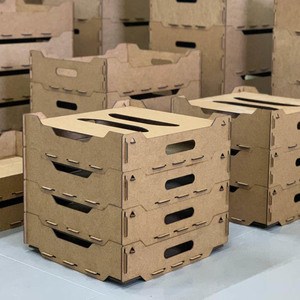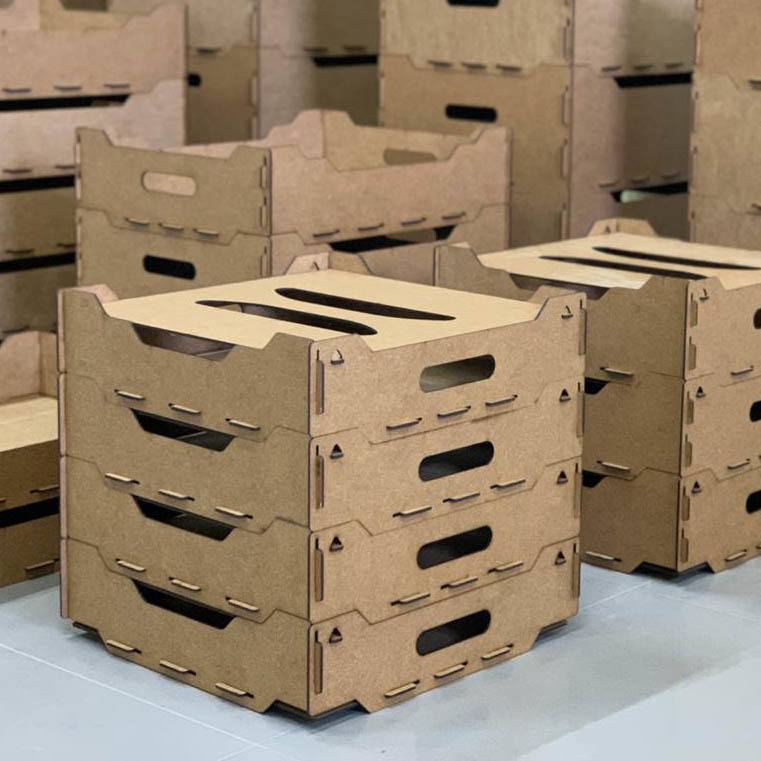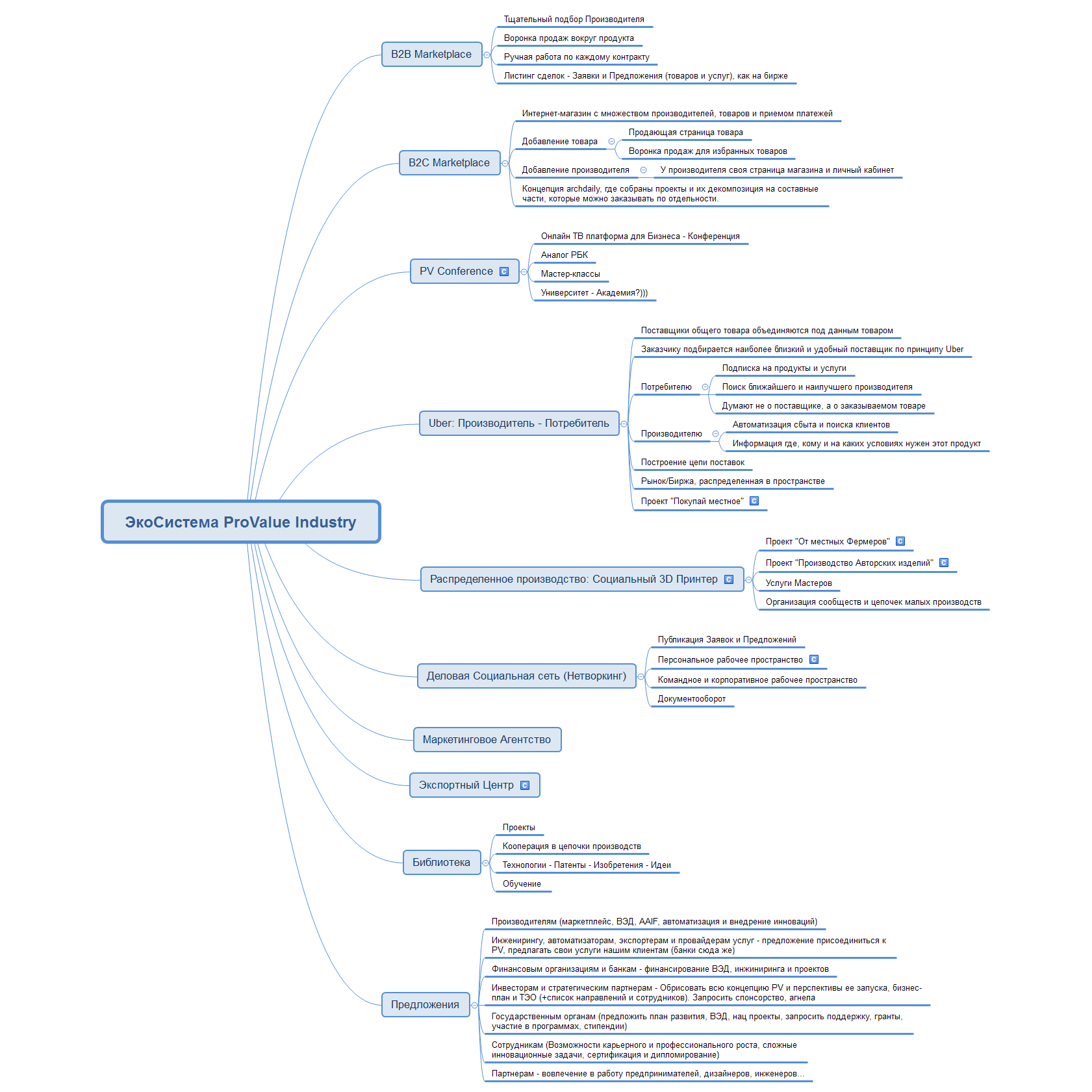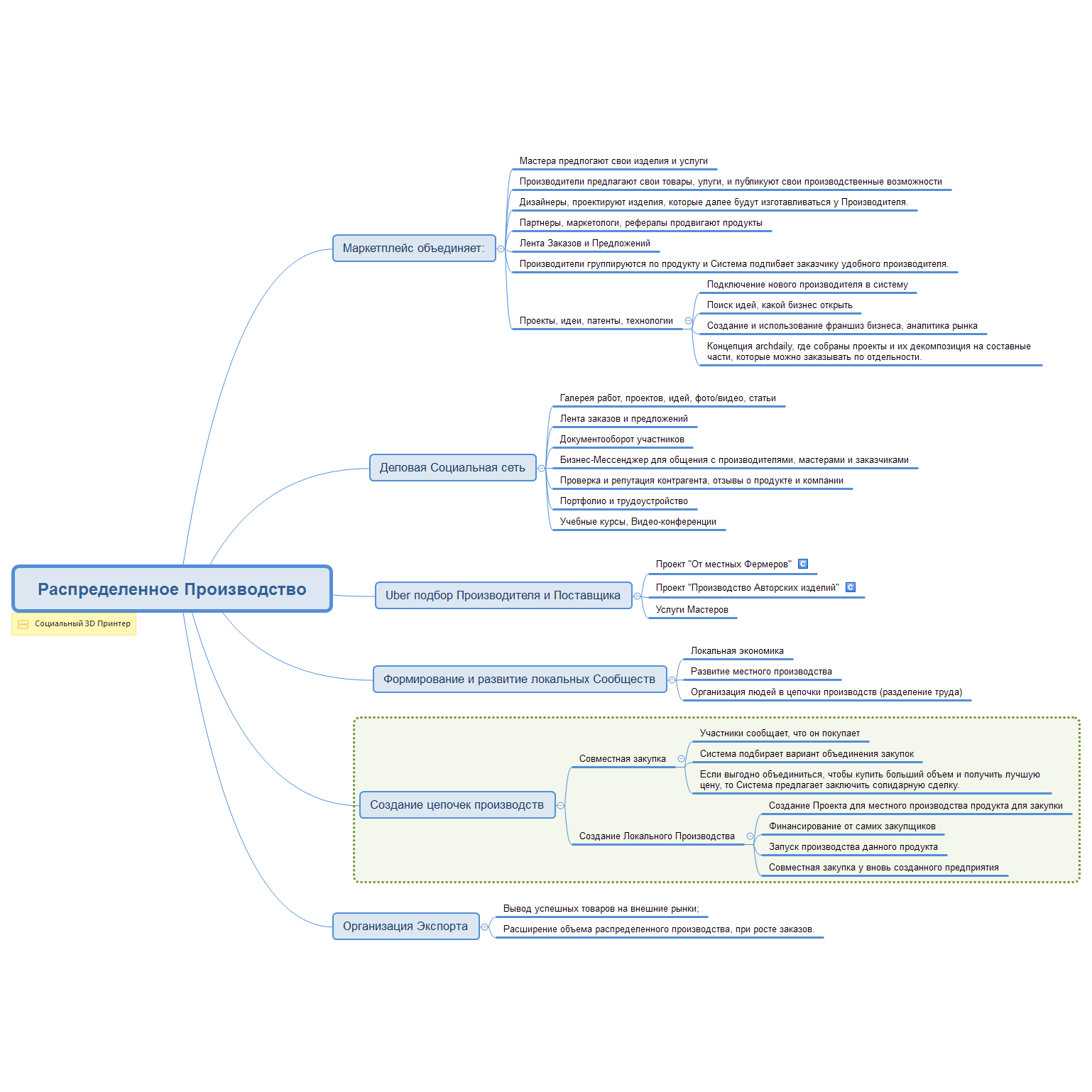Description
Distributed production
Today, two opposite trends are observed in Russia and the World. Since the greatest earning opportunities are present in cities, people tend to leave their villages and small towns and move to a large city, hoping to find a high-paying job. At the same time, the quality of air, food and emotional community with neighbors in a large city is significantly worse than in the countryside, and many people would like to live more comfortably outside the big city, but it is also difficult to constantly travel to work in the city, for many tens of kilometers.
On the other hand, the development of automation tools and a decrease in the share of people employed in industrial production leaves fewer and fewer available jobs in the city, eliminates the need to concentrate people in one place, and modern means of communication provide ample opportunities for remote work, without reducing productivity. Self-isolation during the coronavirus pandemic clearly demonstrated this.
People have an understanding that, on the one hand, they can live in a clean, quiet place outside the city – in a village, a cottage village or in a small town, far from large industrial centers, and at the same time work in their specialty remotely.
The Internet washes out all intermediary transactions from the market, removing resellers, connecting interested parties directly, leaving only opportunities for production and creative work, where there is clearly added value.
Since labor productivity and the price of the product produced are directly related to the level of division of labor, in order for individuals to compete with large holdings on the price of production, it is necessary to create a System that connects myriads of small industries and their consumers, logistics, services and infrastructure into a single Distributed Production System, eliminating losses caused by intermediaries, competition and uncoordinated actions.
Local economy

Since today’s industrial enterprises can produce more and more goods, involving fewer and fewer people, millions of people are left without work and the opportunity to integrate into existing production and sales chains. Moreover, these industries are located far away and goods are sold across half the world, leaving local residents no opportunity to compete with them.
Unable to find a job in their village or city, people are forced to leave their homes and move somewhere, in the hope that it will be better there. However, globalization is a global process, and moving, tearing people away from their roots and the earth, provides fewer and fewer better opportunities.
Such a bias leads to a redistribution of wealth in society. Owners of means of production, reducing costs, automating processes and firing people as much as they can, increase their competitiveness. But since everyone does this, the rate of profit is steadily decreasing, bankruptcy of small enterprises, and concentrating the largest assets of society in the hands of monopolists.
Highly paid specialists hold on to their work, or retrain for new specialties in order to maintain their standard of living. Everyone else falls overboard of the modern economy, steadily reducing their income and their ability to pay for goods and services.
The lack of large capital on the ground does not make it possible to launch a competitive enterprise to hire people, pay them salaries and provide an opportunity to buy a local product. Instead, existing businesses are cutting people off.
It turns out a vicious circle. The solvency of most people is falling, which reduces the profits of local companies and makes the weak bankrupt. Moreover, people spend existing profits on goods brought to them thousands of kilometers away, withdrawing money from the regions, and not paying for goods to their neighbor, making themselves and others even poorer.

In the USA, India and China, these processes have long been realized, and are solved by building local communities, and creating a local economy, under the slogan “Buy local”.
And although an individual entrepreneur can find a business idea and implement it, he will immediately face issues of marketing and sales, competition, as well as accounting and legal tasks that will take away from him the time that he could use to develop his business.
Not being able to produce products in large volumes, he will not be able to go online and sell his product in many markets, but will be content either with representation in those stores with which he can agree, or will open his own store / online store and try to develop it.
At the same time, the Internet, although it provides a local manufacturer with immediate access to the global market, but also puts it on a par with world leaders who can boast of quality control, service center, warranty, support service and many others, which makes them attractive to buyers. As a result, even a neighbor may not find out about the products of his neighbor, and

will buy “Chinese”, instead of buying local products, helping the development of his city.
The designed System should enable consumers to bu
y locally produced goods cheaply, while manufacturers will receive large profits due to the absence of resellers, access to the single market, custom production, remote work and integration opportunities, minimizing advertising and sales costs.
Designed System modules:
- The project “Production of Author’s products”
- The project “From local Farmers”
- The project “Joint Procurement”
- The project “Local production”
Join the New Industrialization >>>

Receive ProValue Updates
Be aware of new supply offers and requests from our customers.













